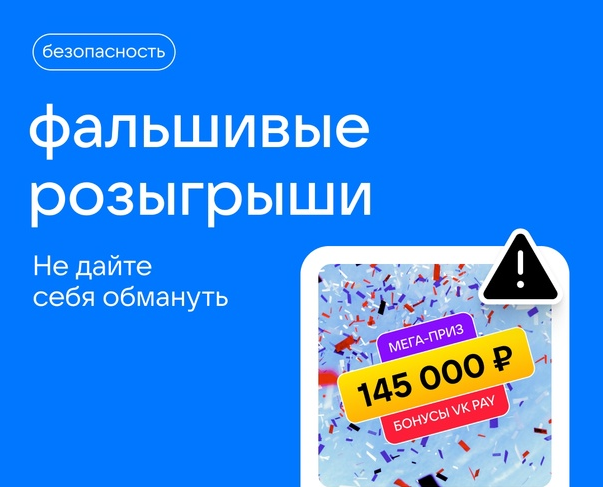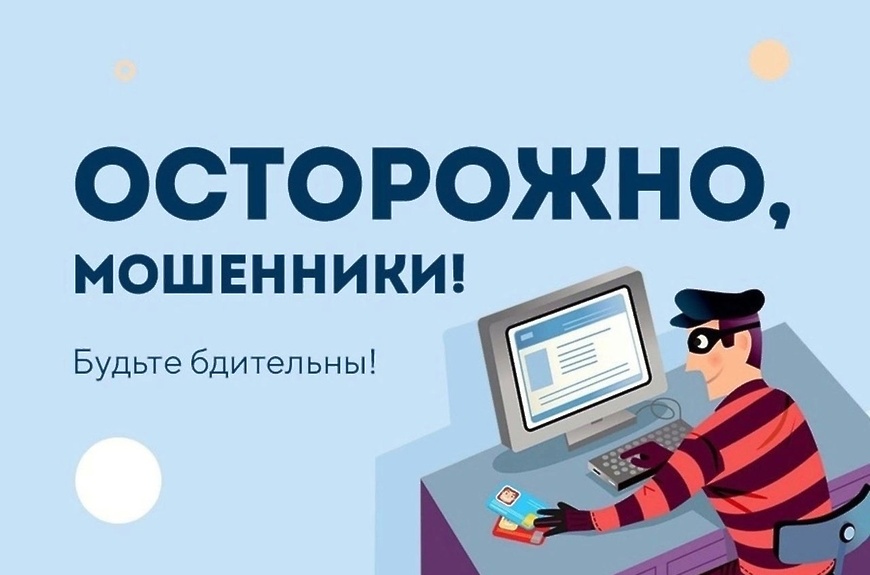Recently, fake contests and giveaways have been gaining popularity on internet platforms. Scammers specifically create such content, attracting a large number of users whom they want to deceive and take their finances. Using well-known brands, scammers copy websites and promise valuable prizes, trying to extract information about bank cards or force victims to make money transfers to fraudulent resources.
Fake giveaways
The scheme of fake giveaways is almost the same; by sending a message about participating in a giveaway, the victim is convinced that they have become a winner and in order to receive either a material or cash prize, they need to transfer a certain amount, which they call a lottery fee or tax.
If the victim transfers their funds to the scammers, the information about the bank card is compromised, and the scammers receive the bank card details and can easily empty the funds there.

Posing as well-known companies, scammers create bots on social networks that invite users to participate in contests and giveaways of valuable prizes, allowing them to collect personal data of participants. After that, all participants become winners, and to receive the prize, they need to grant access to personal data such as:
- Bank accounts;
- Marketplaces;
- Credit cards.
They motivate this by saying that it is necessary to credit the prize funds and also to deliver the prize.
Fraudulent schemes with giveaways from well-known bloggers have become frequent; for this, scammers hack Telegram channels or social networks of popular bloggers if possible. Or they create clone sites on behalf of the blogger and post there with information about:
- upcoming giveaway;
- conditions of participation;
- valuable prizes, where a link is attached leading to an additional site.
Later, the user becomes a winner, and to receive the prize, as always, it is necessary to enter payment system data, allegedly to identify and confirm that the winner is not a bot. Naturally, the blogger is not even aware of the existence of such a scheme until complaints start coming in demanding the return of the stolen money. As a result, the scammers get the money, and the blogger receives a negative reputation and loses followers.

Fraudulent contests
Receiving phishing messages about participation or winning a promotion, the user in anticipation of receiving a prize does not always think about how they became a winner if they never used the resource from which the message came.
And everything is calculated on the inattention of users and the desire to receive prizes and money.
Scammers use various methods to send messages:
- use feedback forms on internet sites;
- copy large companies;
- use multi-step schemes that redirect to various sites and applications.
This is designed so that the user in the process of participating in the contest cannot figure out where and on which resources they left their data, to not be able to make claims and find the organizations to which they gave their money.

Gift scams
Using internet resources and social networks, scammers offer users to participate in a lottery or prize draw, which may be in virtual images, for example, several prize boxes that need to be clicked on. At the same time, the attempt will always be successful; having won such a prize, the winner is offered to receive a gift. To do this, it is necessary to enter personal information about the bank card to which the gift equivalent to its value will be credited. After the user enters the data, payment of a commission is offered, allegedly for converting the winnings into the necessary currency. In such a case, scammers receive information about payment cards and transferred amounts, and the prize turns out to be fake.

Protection from scams
To protect yourself from scams and not fall victim to fake giveaways, lotteries, or promotions, you need to follow some rules:
- ignore suspicious advertisements popping up on websites;
- do not disclose your personal information about bank cards, access codes, secret passwords, and expiration dates;
- do not accept offers to follow dubious links;
- do not download unknown files from unknown sites;
- do not disclose confirmation codes from SMS messages sent for account activation or registration;
- be careful with messages requesting a loan of money from acquaintances, it is better to call back and clarify rather than act rashly by sending the amount;
- try to use only official websites from verified companies.
